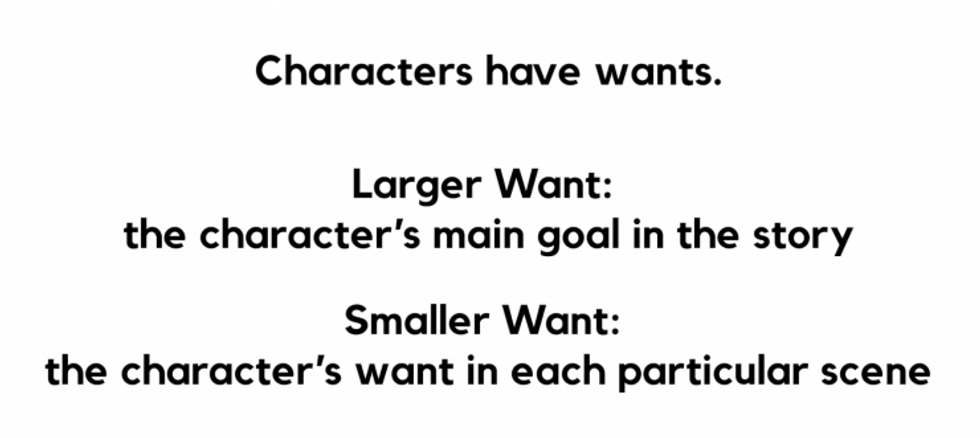How to Build Momentum in Your Screenplay
The only way your screenplay will get passed up the ladder is if it's a page-turner. So how can you build momentum scene to scene?

'Run Lola Run'
If you've ever written coverage or just tried to read a script you didn't like, you know that getting into the story can be nearly impossible. Bad scripts stall in the first pages, but the best scripts keep the pages turning.
They do this by building momentum within each scene.
Today I want to go over how you can build momentum inside your screenplay and make sure each scene takes us on the journey you intended.
Check out this video from Tyler Mowery that goes over momentum in screenwriting and let's talk after the jump!
How to Build Momentum in Your Screenplay
So, what makes a script have momentum? Is it just exciting set-pieces or plot twists?
The answer may surprise you, but it all lies within the character.
What Do Your Characters Want?
The only way people will care about what happens in your screenplay is if you have well-developed characters. When you start to build your characters out from the ether, you might want to figure out what they want.
Not just in the overall story but from scene to scene.
Since every scene is built on a desire, the reader has to be on the same page as the character.
So, what are their desires?
At the beginning of Raiders, Indiana Jones wants the idol. That's his "scene want". But the "story want" becomes the ark of the covenant.
Make sense?
What Does it Cost to Fulfill Those Goals?
Here's something a lot of new writers often miss.
What's the price of the scene?
I'm not talking about what you got paid to write it, but each success or failure needs to cost the character something. These successes or failures will hook the reader. We want to know how it turns out.
Think about when Thanos heads to get the Soul Stone in Infinity War. He has a desire in the scene, the stone. But what does it cost him to get it? It costs Gamora, his daughter, which is an insanely tough choice.
It keeps the script exciting and unexpected.
Force Your Character to Make Tough Choices
Screenplays cannot be about the village of the happy people. Well, they can. but who the hell would watch that movie?
Even the Smurfs have problems.
It can be hard, but you have to torture your characters.
The stronger the choice, the more compelling the scene. Don't believe me? Ask the movie SOPHIE'S CHOICE!
It doesn't have to be a maniacal choice either, like when the Green Goblin drops Mary Jane and a bus full of people. You want even the smallest scenes to involve these decisions because they create active characters.
When you have a choice, you want to turn the page to figure out what happens.
Each scene then builds and builds until suddenly you have a page-turner with plenty of momentum.
Deal with the Consequences
Not every scene needs to have a solid choice scenario. Sometimes we just need to see the consequences of said choice. Whether it's that moment of aftermath where Thanos mourns Gamora or Indiana Jones dealing with the snake in his place.
So, what are the consequences of the choice?
In a movie like Forty-Year-Old Virgin, we get moments of the aftermath when Andy accepts the poker invitation. This obviously leads to another choice and the hook of the movie. But even in these choices, we get actions and reactions.
How Does This Build Momentum?
As we mentioned in the opening, momentum is just the pace at which the story unfolds. that doesn't mean you need to have a lightning-fast story, like a Run Lola Run, but it does mean that each scene needs to be interesting.
Goodfellas is an almost three-hour movie but it sustains that length by keeping the conflicts and aftermath coming. Its script is a page-turner because we always want to know how Henery Hill will act and react.
And we even open the movie on a small conflict...the person in the trunk who just won't die.
This kill gives us the momentum to push through the next pages, and those well-crafted scenes keep the story moving.
What's next? Write a feature in 10 weeks!
Screenwriting is hard. But to become a filmmaker, you need to learn script writing to master storytelling. We'll give you free lessons.
Click to learn
















